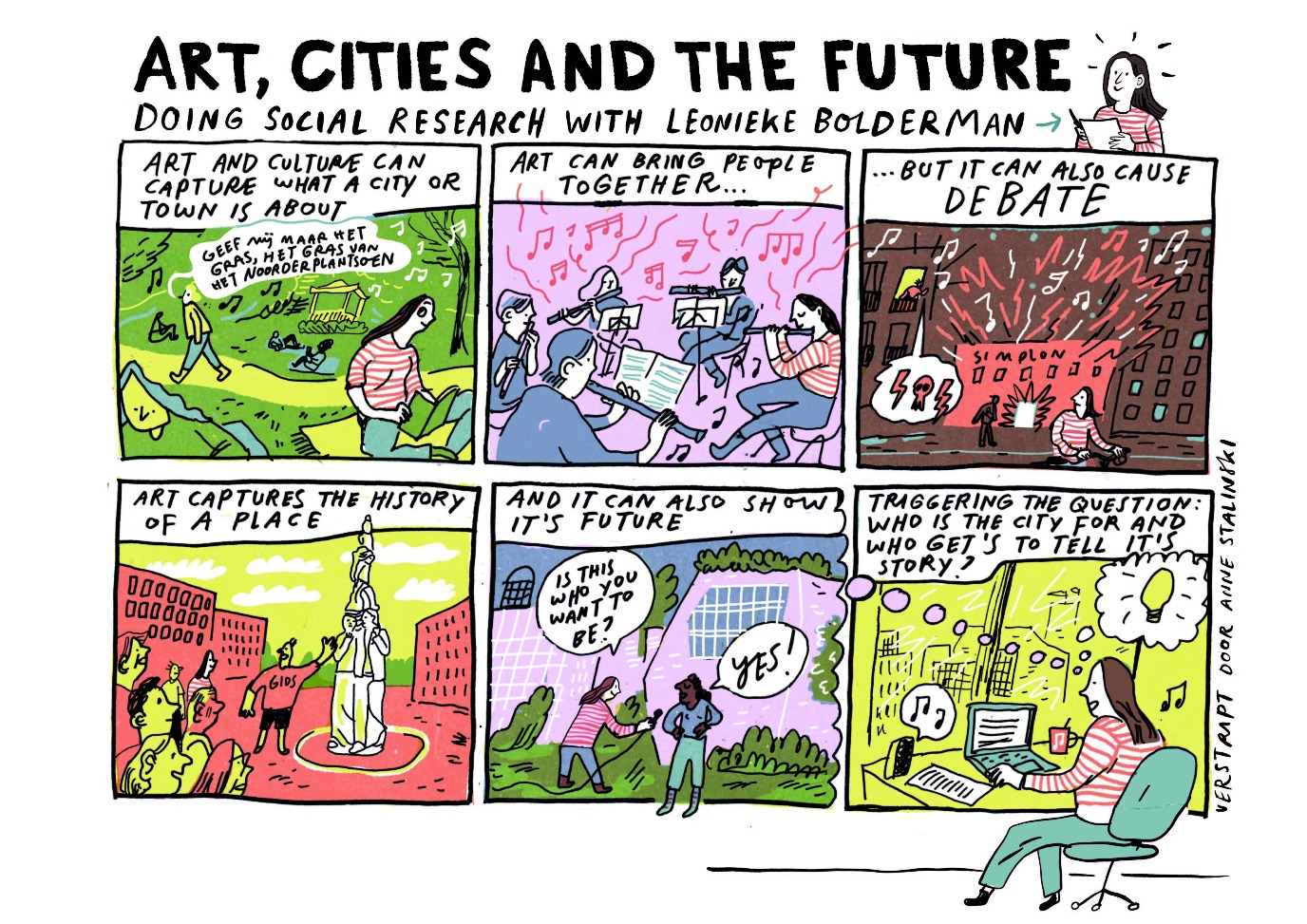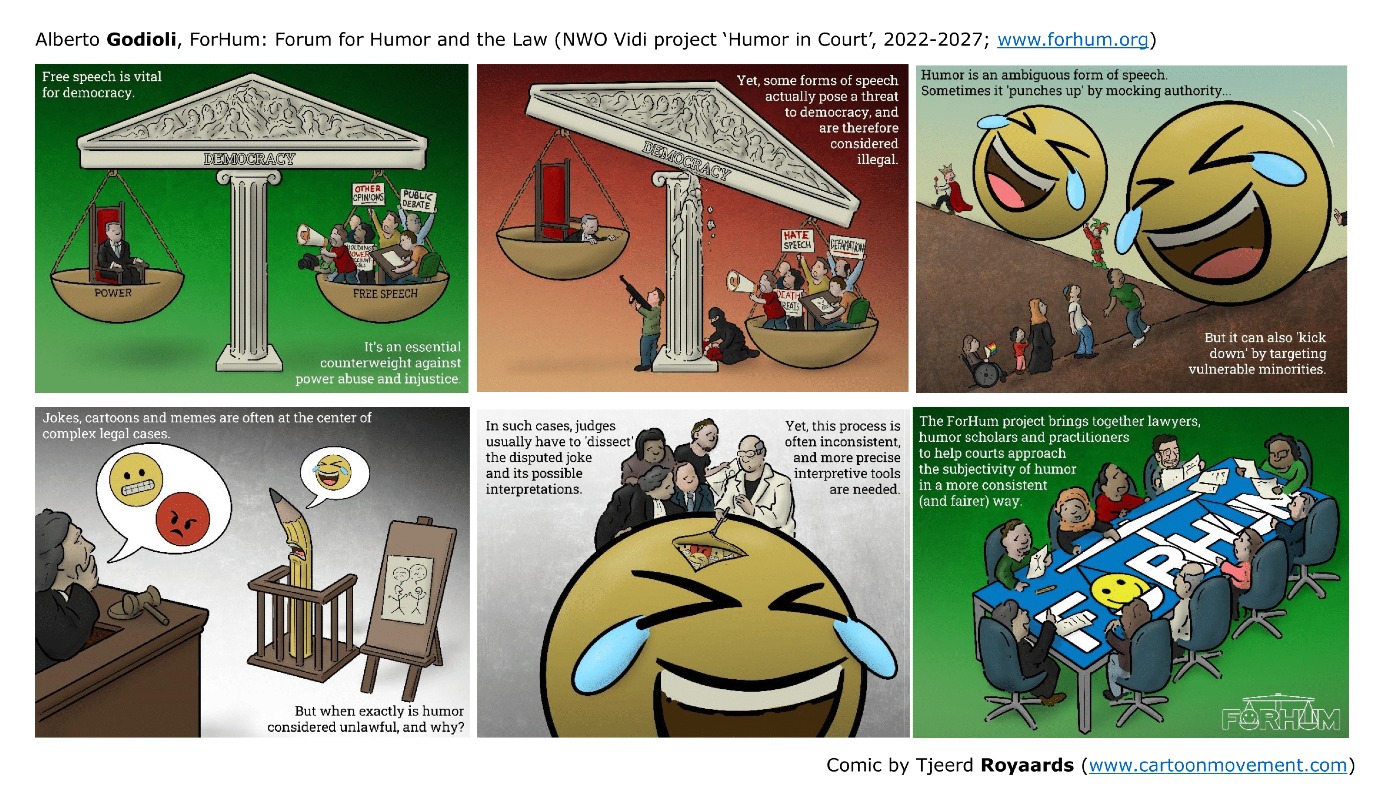Tools of the Trade (2022)
Call for Proposals: ‘Tools of the Trade’
The 2022 cohort of the Young Academy Groningen is working on a book titled Tools of the Trade: Picturing Knowledge (to be published by UGP in 2025-2026). Using cartoons as a mode of communication, this book aims to engage the general audience with the ‘tools’ that researchers from different academic disciplines use to conduct their research and to construct knowledge. Please find a short description below:
What do academics do, exactly? What are the tools of scientific research, and how do they differ from one field to another? And why does this matter?
In a time of growing misinformation and skepticism towards specialist knowledge, making research practices more transparent is an important challenge for universities.
This book is based on a dialogue between academics from the University of Groningen and a diverse group of talented visual artists. It features comics focusing on the various ways in which researchers study their field and create knowledge – be it through lab experiments, ethnographic observations, archival research or citizen science.
We are looking for more researchers who want to be a part of this book. Would you like to translate your research into a comic? If so, please send a short motivation (up to 300 words), including a rough verbal description of your envisioned six-panel comic, to youngacademy rug.nl before October 1st, 2025! Please remember to specify what field you are in, so that we can make sure to cover a wide range of methods and topics.
If your proposal is selected, we will be happy to put you in contact with one of the artists we have been working with during the first phase of the project, so that you can start working together on your storyboard.
Editors: Leonieke Bolderman, Sean Desjardins, Alberto Godioli, Sander van Lanen, Jolien . Mouw, Naomi de Ruiter, Else Starkenburg, Riemer Vegter
Here are some examples from our pilot projects

Art, Cities and the Future. Doing Social Research with Leonieke Bolderman
Leonieke Bolderman, Faculty of Spatial Sciences
Anne Stalinski, illustrator-alterego of Anne Staal, winner of the Zilveren Penseel 2019 (Silver Brush Award 2019) and renowned illustrator for various national and international media.
Why: What role does art and culture play in shaping contemporary societies and the ways cities and regions are organized and experienced? This question drives my curiosity, and is central to my research. Ever since learning how to play the flute as a child, I have been fascinated by the power of music. By exploring how art and culture become and remain meaningful to other people, I get to engage with unraveling this power every day.
How: Meaning making, exploring art practices and the ways these shape our environment are activities that require observation, interaction, conversation, and careful study of artworks, documents and artefacts to get to the bottom of what is going on. Therefore, instead of measuring, testing and calculating data, I go out into the world and engage with research participants in their everyday lives. This way, I refine my analyses and interpretations project after project, finding out why art figuratively and literally moves people.
What: My research is interdisciplinary, combining questions, methods and insights from cultural geography, cultural sociology, heritage studies, tourism studies and urban planning. Therefore, I call myself a social scientist: I study meaning-making practices of human beings in their cultural context, with a specific focus on the role of art and culture in urban and regional development.

Humor in Court: The ‘ForHum’ project
Alberto Godioli, Faculty of Arts
Tjeerd Royaards, award-winning editorial cartooning and Editor-in-Chief of Cartoon Movement
Why: On the one hand, the right to freely express oneself through humor and satire is vital for democracy. On the other, certain forms of humor are sometimes used as a way to disguise unlawful speech – such as incitement to violence, for example. As a consequence, humor is often at the center of complex legal cases, where courts tend to struggle with the subjective nature of jokes. But how can judges develop a fairer and more nuanced approach to humor in free speech jurisprudence?
How: In order to tackle this issue, my research combines insights from legal scholarship and practice with relevant notions from the humanities. In particular, research coming from cultural studies, literary theory and linguistics is especially useful in this respect, as it focuses on matters of interpretation – including, for instance, the different ways in which context may influence the meaning of a joke.
What: I am developing this line of research within the ‘Humor in Court’ project (also known as ‘ForHum’), in which I coordinate a team including two postdoctoral researchers with a legal expertise, and a PhD with a background in the humanities (just like myself). The project is funded by the Dutch Research Council (NWO) from 2022 to 2027. In 2022 I also created a platform called ‘Forum for Humor and the Law’ (www.forhum.org), which serves as a meeting point for lawyers, scholars, activists, artists, and anyone interested in the intersection of humor, free speech and related legal matters.
